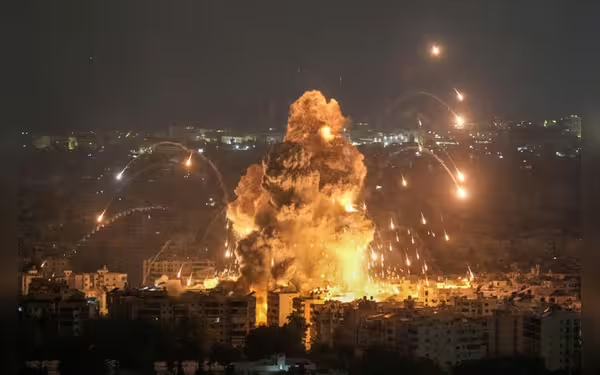Saturday, November 16, 2024 05:56 PM
Hezbollah Vows to Continue Resistance Against Israeli Aggression
- Hezbollah reaffirms commitment to fight Israeli aggression.
- The group faces challenges but remains resolute.
- Humanitarian consequences escalate amid ongoing conflict.
 Image Credits: thefrontierpost
Image Credits: thefrontierpostHezbollah vows to continue fighting Israeli aggression, emphasizing its commitment amid escalating regional tensions and humanitarian crises.
In recent developments, Hezbollah, the powerful militant group based in Lebanon, has reiterated its commitment to continue fighting against what it describes as Israeli "aggression." This statement comes on the anniversary of the October 7 attack by Hamas, which has significantly escalated tensions in the region and triggered a war in the Gaza Strip. The conflict has drawn in various factions and has had a profound impact on the lives of many in the area.
Hezbollah, which is backed by Iran, has faced considerable challenges since it decided to open a "support front" for Gaza on October 8. The group acknowledges that both it and the Lebanese people have paid a "heavy price" for this decision. Despite these challenges, Hezbollah remains resolute, expressing confidence in its "resistance" against Israeli forces. In a recent statement, the group referred to Israel as a "cancerous gland that must be eliminated, no matter how long it takes." This metaphor underscores the group's determination to confront what it perceives as ongoing threats to its existence and the broader Palestinian cause.
The ongoing conflict has not only affected military strategies but has also had dire humanitarian consequences. Civilians in both Lebanon and Israel have been caught in the crossfire, leading to loss of life and displacement. The situation remains tense, with both sides preparing for potential escalations. The international community watches closely, as the implications of this conflict extend beyond the immediate region, affecting global politics and security.
As the situation unfolds, it is crucial for observers to understand the complexities involved. The narratives of resistance and aggression are deeply rooted in historical grievances and political dynamics. While Hezbollah's commitment to its cause is clear, the broader implications for peace and stability in the region remain uncertain. The hope for a resolution that addresses the underlying issues continues to be a distant aspiration, as both sides brace for what may come next.













